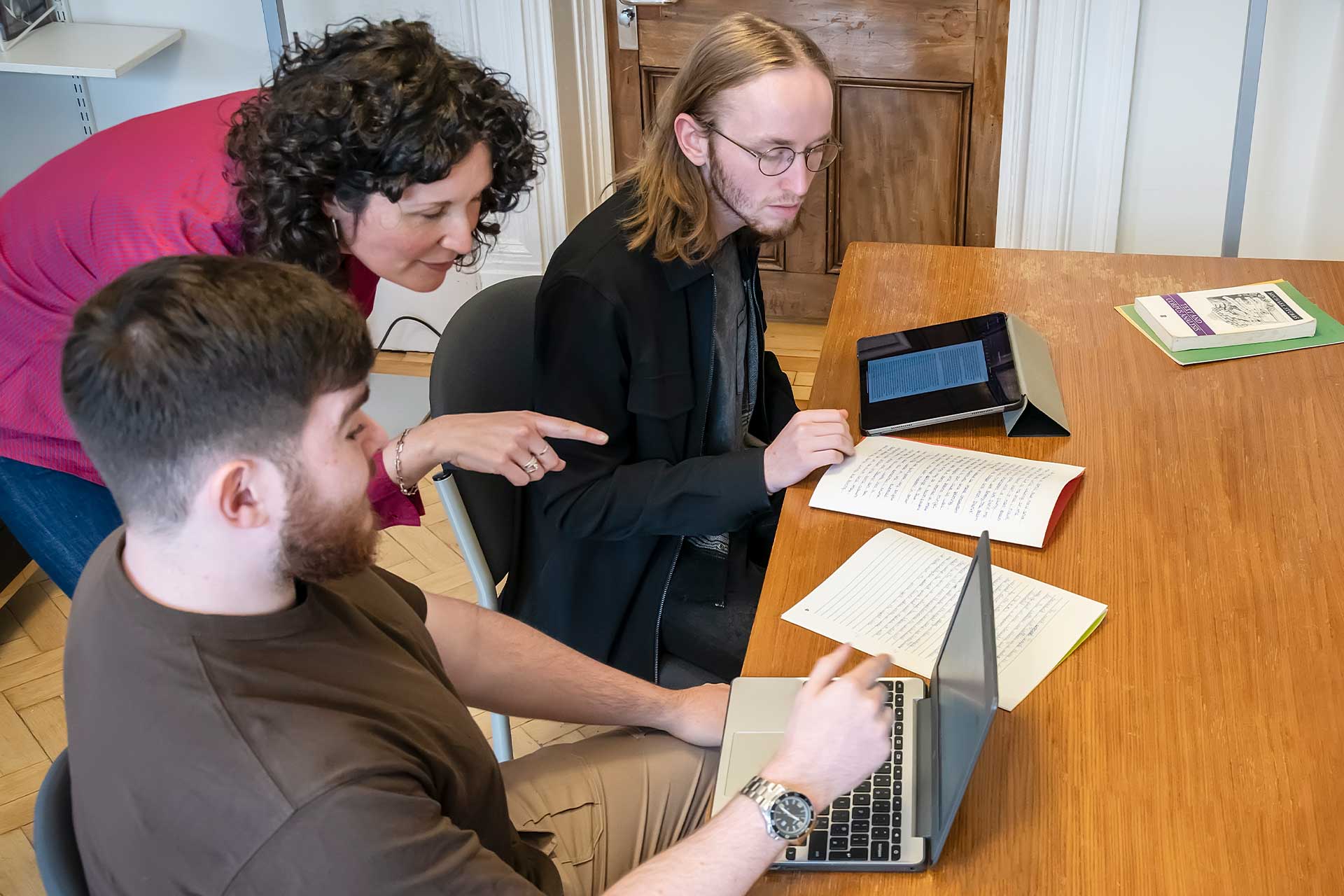Study in Ireland

About Ireland
Looking to pursue your education amidst the picturesque green landscapes rich in history? Look no further than Ireland – your dream study destination. Ireland boasts universities renowned for their world-class education systems, along with a welcoming and open-minded community. With easily navigable major cities, it's undoubtedly one of the top choices for students worldwide.
BOOK AN APPOINTMENT
Why Study In Ireland?
- Ireland is an English-speaking country.
- Ireland has one of the best education systems in Europe.
- Ireland is recognised as an international location for high-quality scientific research.
- Ireland is a dynamic, lively, and modern country.
- Ireland is a safe country to study in.
- Ireland is a highly developed democracy with a modern economy.
- Irish higher education institutions are widely recognised for excellence.

Why Study in Ireland?
Education
The education offered at Irish universities is among the world’s best. Seven of the top-level universities being stationed in Ireland, this is a study hub for students willing to pursue quality education.
Research Opportunity
Irish universities being in the top 1% of the research universities of the world and the home of major pharma companies, Ireland offers international students unmatched research opportunities to drive their innovative streak and see them skyrocket in their careers ahead.
Career
The graduates of Irish universities are exemplified by their ability to not just tackle the problems of today but to seek the solution for tomorrow in their chosen fields.


Documents Required for the Application Process
Academic Transcripts: Mark Sheets of Standard X, XII, and the bachelor’s degree (if applicable).
Language Proficiency Test Scores: Internet-based TOEFL or IELTS scores.
Letters of Recommendation (LOR): If you have work experience, then two LORs from the employer/manager who can comment on your professional abilities.
Statement of Purpose (SOP): A written statement explaining your academic and career goals.
Academic Resume: A detailed resume highlighting your education and achievements.
Portfolio: Required for students applying for art, design, or architecture programs.
Others: Certificates/achievements at state and national levels and extracurricular activities.
Proof of Funds: Financial documents to show your ability to fund education.
Health Insurance: A mandatory requirement for international students.
Passport: A copy of your passport, along with certified translations of all documents in English.
Academic Requirements
- Undergraduate: 10+2
- Graduate:16 years of education required
- Some institutions accepts 3 years of degree i.e. B.Com, B.Sc., B.A etc.- into their Masters or MBA Program
- Strong academic background
- Good scores in entrance exams like SAT/ACT/GRE/GMAT & TOEFL/IELTS/PTE
- Strong Recommendation Letters
- Work experience documents
- Valid Passport
- Statement of Purpose/Personal Statement, Essays
- Sound financial background
- Resume

Cost to Study in Ireland
Studying in Ireland is known for its affordability compared to countries like the UK and the US. Costs vary based on factors such as your institution, program, and nationality.
For EU students, public universities charge undergraduate tuition fees ranging from €9,850 to €15,000 per year, while postgraduate fees range from €12,000 to €30,000 per year. Non-EU students can expect higher fees, with undergraduate costs ranging from €15,000 to €30,000 per year and postgraduate fees between €20,000 and €40,000 per year at public universities. Private institutions tend to be more expensive, with fees ranging from €15,000 to €50,000 annually.
In addition to tuition, you'll need to budget for living expenses, which typically amount to €1,000 to €1,500 per month, covering rent, food, transportation, and books. To make studying in Ireland more cost-effective, consider applying for scholarships, living off-campus, cooking at home, and taking advantage of student discounts. Overall, Ireland offers an affordable and enjoyable study abroad experience.
Book an Appointment →Living Expenses in Ireland
The cost of living in Ireland can be relatively high compared to many other European countries and varies based on your location and lifestyle. Rent often constitutes the largest expense, particularly in Dublin, where a one-bedroom apartment can cost around €1,500 per month. Food expenses typically average about €200 per month, but you can save money by cooking at home and shopping at discount supermarkets. Public transportation, such as a monthly pass for buses and trains in Dublin, costs around €80.
Additional expenses, including utilities, insurance, and entertainment, vary depending on your lifestyle but usually amount to around €200 per month. For a single person in Dublin, a sample monthly budget might look like this:
| Category | Monthly Cost* |
|---|---|
| Rent | €1,500 |
| Food | €200 |
| Transportation | €80 |
| Other Expenses | €200 |
Of course, your actual costs can be higher or lower based on factors like dining habits and location. Sharing accommodations with roommates, cooking at home, shopping at discount stores, and enjoying free activities like museums and parks can help you save on living expenses in Ireland. These strategies can make your time in Ireland more budget-friendly.
Post-Study Work Rights in Ireland
International students who complete their studies at recognized higher education institutions in Ireland can apply for a post-study work visa, which grants them a two-year work opportunity in the country upon graduation. To be eligible, students must:
Eligibility Criteria:
Have completed a full-time undergraduate or postgraduate program at a recognized Irish higher education institution.
Have achieved a minimum grade of 60% in their final year.
Possess a valid passport and have completed the visa application form.
Demonstrate sufficient funds to sustain themselves while in Ireland.
If you meet these criteria, you can apply for the post-study work visa at the Irish embassy or consulate in your home country. With this visa, you'll have the freedom to work for any employer in Ireland, switch jobs, or even start your own business.
How to Improve Your Job Prospects:
Network with Irish professionals to expand job opportunities.
Improve your language skills to enhance communication.
Customize your application materials for each job opportunity.
Be prepared to discuss your motivation for working in Ireland.
The post-study work visa offers an excellent opportunity for international students to gain valuable work experience and build a career in Ireland. Following these steps can significantly increase your chances of securing a job in the country.

